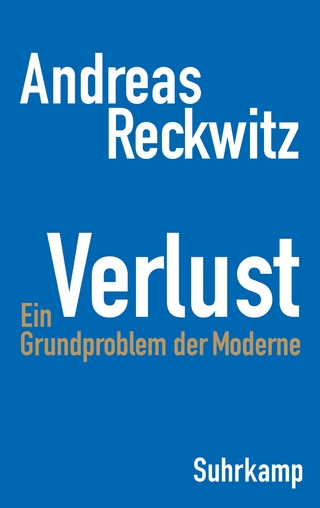
Introduction to Sociological Theory
Wiley-Blackwell (Verlag)
978-1-119-88741-6 (ISBN)
Introduction to Sociological Theory helps undergraduate and graduate students appreciate the diverse perspectives found in sociological analysis, apply theoretical concepts to contemporary issues, and think analytically about everyday occurrences beyond the classroom. Covering a diverse range of theorists and conceptual frameworks, this easily accessible textbook integrates carefully selected primary quotations, extensive discussion of key topics, and a wealth of illustrative empirical examples from around the world.
The updated fourth edition of Introduction to Sociological Theory provides new contemporary examples, new discussion of current events, and new material demonstrating the relevance and practical application of sociological concepts in daily life. An entirely new section on posthumanism is accompanied by timely coverage of climate change, COVID-19, social media, post-truth society, the gig economy, ChatGPT, intersectionality, economic and racial inequality, and more.
Written in a lively and engaging style, Introduction to Sociological Theory:
Illustrates the relevance and real-world application of various sociological concepts and analytical ideas
Offers detailed discussion of concepts and ideas found in excerpts from original theoretical writings
Helps students apply theoretical concepts to sociological topics such as globalization, inequality, crime, race and gender, political sociology, sexuality, culture, and religion
Contains timelines of significant events, analytical photos, chapter glossaries, end-of-chapter review questions, full references, and mini-biographies of important figures
Includes access to a companion website with multiple-choice and essay questions, PowerPoint slides, complementary primary readings, a quotation bank, and other background materials
Introduction to Sociological Theory: Theorists, Concepts, and their Applicability to the Twenty-First Century, Fourth Edition, remains an ideal textbook for undergraduate and graduate courses on contemporary and classical sociological theory, as well as an excellent supplement for related courses across the social sciences.
MICHELE DILLON, PHD, is Dean of the College of Liberal Arts and Class of 1944 Professor of Sociology at the University of New Hampshire, where she teaches courses in sociological theory. Her publications include the Handbook of the Sociology of Religion, the Concise Reader in Sociological Theory, 5 academic books, and more than 50 book chapters and articles in leading journals.
List of Boxed Features xi
List of Analytical Photos xiv
Acknowledgments xviii
How to Use This Book xix
About the Companion Website xxi
Introduction – Sociological Theory: A Vibrant, Living Tradition 1
Analyzing Everyday Social Life: Starbucks 4
Societal Transformation and the Origins of Sociology 12
The Establishment of Sociology as Science: Auguste Comte and Harriet Martineau 17
Social Inequality and Contextual Standpoints: Du Bois, De Tocqueville, and Martineau 23
Summary 29
Points to Remember 29
Glossary 30
Questions for Review 31
Note 31
References 32
1 Karl Marx (1818–1883) 34
Expansion of Capitalism 37
Capitalism as Structured Inequality 39
Marx’s Theory of History 40
Dialectical Materialism 41
Communism 43
The Millennium’s Greatest Thinker 44
Human Nature 44
Material and Social Existence Intertwined 45
Capitalism as a Distinctive Social Form 46
The Division of Labor and Alienation 57
Economic Inequality 64
Ideology and Power 68
Summary 76
Points to Remember 76
Glossary 77
Questions for Review 79
Notes 79
References 80
2 Emile Durkheim (1858–1917) 82
Durkheim’s Methodological Rules 85
The Nature of Society 91
Societal Transformation and Social Cohesion 96
Traditional Society 97
Modern Society 99
Social Conditions of Suicide 106
Religion and the Sacred 116
Summary 123
Points to Remember 123
Glossary 124
Questions for Review 125
Notes 126
References 126
3 Max Weber (1864–1920) 129
Sociology: Understanding Social Action 133
Culture and Economic Activity 133
Ideal Types 140
Social Action 141
Power, Authority, and Domination 149
Social Stratification 159
Modernity and Competing Values 163
Summary 166
Points to Remember 166
Glossary 168
Questions for Review 169
Notes 169
References 170
4 American Classics: The Chicago School, Talcott Parsons, and Robert Merton 172
The Chicago School of Sociology 173
Talcott Parsons 176
The Social System 177
Socialization and Societal Integration 180
Social Change and the Secularization of Protestantism 182
Pattern Variables 183
Modernization Theory 188
Stratification and Inequality 190
Robert Merton 193
Neofunctionalism 198
Summary 200
Points to Remember 200
Glossary: Chicago School 201
Glossary: Parsons 202
Glossary: Merton 203
Glossary: Luhmann 203
Glossary: Alexander 204
Questions for Review 204
Note 204
References 204
5 Critical Theory: Technology, Culture, and Politics 207
The Societal Critique of Horkheimer, Adorno, and Marcuse 212
Dialectic of Enlightenment 216
Mass Culture and Consumption 223
Politics: Uniformity and Control 234
Jürgen Habermas: The State and the Public Sphere 239
Summary 245
Points to Remember 245
Glossary 246
Questions for Review 248
References 249
6 Conflict, Power, and Dependency in Macro-Societal Processes 251
Ralf Dahrendorf ’s Theory of Group Conflict 252
C. Wright Mills: Class and Power 258
Dependency Theory: Gunder Frank’s and Cardoso’s Neo-Marxist Critiques of Economic Development 264
Summary 270
Points to Remember 270
Glossary 271
Questions for Review 272
References 272
7 Exchange, Exchange Network, and Rational Choice Theories 274
Exchange Theory: George Homans and Peter Blau 275
Exchange Network Theory: Richard Emerson, Karen Cook, Mark Granovetter 282
Rational Choice Theory (RCT) and Its Critique: James Coleman, Gary Becker, Paula England 287
Analytical Marxism 293
Summary 295
Points to Remember 295
Glossary: Exchange Theory 296
Glossary: Exchange Network Theory 296
Glossary: Rational Choice Theory 297
Glossary: Analytical Marxism 297
Questions for Review 297
Note 298
References 298
8 Symbolic Interactionism 301
Development of the Self Through Social Interaction: G. H. Mead and C. H. Cooley 302
The Premises of Symbolic Interactionism: Herbert Blumer 308
Erving Goffman: Society as Ritualized Social Interaction 309
Symbolic Interactionism and Ethnographic Research 324
Summary 324
Points to Remember 325
Glossary 326
Questions for Review 328
Note 328
References 328
9 Phenomenology and Ethnomethodology 331
Phenomenology: Alfred Schutz, Peter Berger, and Thomas Luckmann 332
Ethnomethodology: Harold Garfinkel 344
Gender as an Accomplished Reality: Candace West and Don Zimmerman 348
Summary 352
Points to Remember 353
Glossary: Phenomenology 354
Glossary: Ethnomethodology 354
Questions for Review 355
References 355
10 Feminist Theories 357
Consciousness of Women’s Inequality: Charlotte Perkins Gilman 361
Standpoint Theory: Dorothy Smith and the Relations of Ruling 364
Masculinities: R.W. Connell 376
Patricia Hill Collins: Black Women’s Standpoint 378
Sociology of Emotion 388
Arlie Hochschild: Emotional Labor 389
Summary 396
Points to Remember 397
Glossary 398
Questions for Review 399
Notes 400
References 400
11 Sex, Bodies, Truth, Power: Michel Foucault, Steven Seidman, and Queer Theory 403
Disciplining the Body 404
Sex and Queer Theory 415
Summary 426
Points to Remember 426
Glossary 427
Questions for Review 428
References 428
12 Postcolonial Theories and Race 430
The Color Line 433
Slavery and Racial Otherness: Edward Said, Frantz Fanon 434
Colonialism: The Creation of Otherness 436
The Phenomenology of Otherness 439
New Directions in the Sociology of Colonialism: R. W. Connell 440
Southern Theory 441
Race and Racism 442
Cultural Histories and Postcolonial Identities: Stuart Hall 445
Construing Whiteness 448
Race and Class: William J. Wilson, Cornell West 449
Scarring of Black America 451
Racial Politics and Democracy 451
Culture and the New Racism: Paul Gilroy 455
New Racism 456
Summary 459
Points to Remember 459
Glossary 460
Questions for Review 461
References 462
13 Pierre Bourdieu: Class, Culture, and the Social Reproduction of Inequality 465
Social Stratification 467
Family and School in the Production of Cultural Capital 472
Taste and Everyday Practices 476
Summary 486
Points to Remember 487
Glossary 487
Questions for Review 488
References 488
14 Economic and Political Globalization: Wallerstein, Sklair, Giddens, Sassen, Bauman, Castells 491
What is Globalization? 497
Economic Globalization 498
Immanuel Wallerstein: The Modern World-System 499
Contemporary Globalizing Economic Processes 505
Globalizing Political Processes: The Changing Authority of the Nation-State 513
Summary 526
Points to Remember 527
Glossary: Wallerstein 528
Glossary: Other Relevant Concepts 528
Questions for Review 529
Notes 530
References 530
15 Modernities, Risk, Cosmopolitanism, and Posthumanism 533
Jürgen Habermas: Contrite Modernity 534
S.N. Eisenstadt: Multiple Modernities 536
Ulrich Beck: Global Risk Society 542
Anthony Giddens: Dilemmas of the Self Amidst Uncertainty 545
Cosmopolitan Modernity 547
The Global Expansion of Human Rights 549
Posthumanism 554
Summary 561
Points to Remember 561
Glossary 562
Questions for Review 563
References 564
Glossary 567
Sociological Theorists and Select Key Writings 588
Index 592
| Erscheinungsdatum | 04.05.2024 |
|---|---|
| Verlagsort | Hoboken |
| Sprache | englisch |
| Maße | 178 x 252 mm |
| Gewicht | 1293 g |
| Themenwelt | Sozialwissenschaften ► Soziologie |
| ISBN-10 | 1-119-88741-0 / 1119887410 |
| ISBN-13 | 978-1-119-88741-6 / 9781119887416 |
| Zustand | Neuware |
| Informationen gemäß Produktsicherheitsverordnung (GPSR) | |
| Haben Sie eine Frage zum Produkt? |
aus dem Bereich


